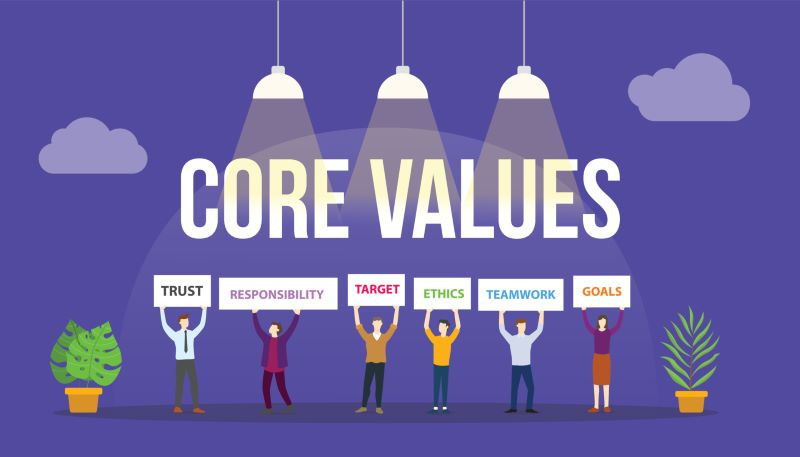In today’s competitive business landscape, attracting and retaining top talent is crucial for success.
While competitive salaries and benefits are important factors, a growing number of employees prioritize something even more: company culture. But, how can company culture shape employee motivation and general performance? Continue reading to find out!
Company Culture: The Unspoken Rules of the Workplace
Company culture refers to the shared values, attitudes, goals, and behaviors that define a workplace. It’s the invisible hand that shapes how employees interact with each other, their leaders, and their work. It’s not just about ping pong tables and free lunches (although those can be perks!), it’s about the deeper sense of purpose, belonging, and motivation employees experience.

How Does Company Culture Shape Employee Motivation
A strong company culture acts as a powerful motivator. When employees feel valued, respected, and supported, they’re more engaged in their work. They’re more likely to go the extra mile, collaborate effectively, and contribute to the company’s success.
Think about it this way: if you constantly feel micromanaged, unheard, or undervalued, would you be particularly motivated to put in your best effort? Conversely, in a culture that fosters open communication, celebrates achievements, and empowers employees to make decisions, you’re more likely to see a spark of passion and dedication.
Here’s how a positive company culture can directly impact employee motivation:
- Increased Sense of Purpose: When employees understand how their work contributes to the company’s mission and vision, they feel a greater sense of purpose. This intrinsic motivation fuels their drive to excel.
- Improved Collaboration: A strong culture fosters teamwork and collaboration. Employees feel comfortable sharing ideas, helping colleagues, and working towards common goals.
- Enhanced Innovation: Cultures that encourage creativity and calculated risks allow employees to think outside the box and develop innovative solutions.
- Reduced Stress and Burnout: When employees feel supported and valued, they’re less likely to experience stress or burnout. This leads to a happier, healthier workforce.

The Impact on Business Leaders and Strategic Planning
Company culture isn’t something that magically appears. It requires deliberate planning and ongoing management from business leaders.
Here’s how leadership plays a crucial role in shaping company culture:
- Defining Core Values: Leaders need to establish the company’s core values – the fundamental beliefs that guide all business decisions and employee interactions. These values should be clearly communicated and consistently upheld.
- Leading by Example: Leaders set the tone for the entire organization. Their behavior, communication style, and decision-making processes all contribute to the overall culture.
- Empowering Employees: Micromanagement is the enemy of a strong culture. Indeed, leaders who empower employees to make decisions, take ownership of their work, and contribute their ideas foster a sense of trust and accountability.
- Recognition and Rewards: When employees go above and beyond, it should be acknowledged and celebrated. Leaders who recognize and reward positive behaviors reinforce the desired aspects of the company culture.

Managing Culture: A Continuous Process
Company culture isn’t static. It evolves as the company grows and adapts to market changes. Here are some tips for business leaders to continuously manage and improve their company culture:
- Regular Communication: Keep employees informed about company goals, changes, and successes. Encourage open communication channels where employees feel comfortable sharing their ideas and concerns.
- Feedback Mechanisms: Create opportunities for employees to provide feedback on the company culture. This could be through surveys, focus groups, or one-on-one meetings.
- Building Strong Teams: Foster a sense of community within teams. Encourage team-building activities and celebrate team achievements.
- Invest in Employee Development: Show your commitment to employees by investing in their professional development. Offer training programs, conferences, and opportunities for skill-building.
A Strong Culture Equals Business Success
There’s a growing body of research that demonstrates the positive correlation between strong company culture and organizational success. Studies have shown that companies with positive cultures experience:
- Higher Employee Retention Rates: Happy employees are less likely to leave for other opportunities.
- Increased Customer Satisfaction: Engaged employees deliver better customer service, leading to higher satisfaction and loyalty.
- Improved Financial Performance: Reduced turnover, higher productivity, and a focus on innovation all contribute to a stronger bottom line.
Building a strong company culture takes time and effort, but the payoff is undeniable. It creates a foundation for long-term success and a competitive edge in the marketplace.

Cultivating a Culture of Growth
Here are some additional points to consider as you take the next step in building a thriving company culture that shapes your employees:
1. Tailoring Your Approach
There’s no one-size-fits-all approach to company culture. The ideal culture for a tech startup will likely look different from that of a long-established law firm. Consider your industry, company size, and workforce demographics when shaping your cultural initiatives.
2. Employee Recognition Programs
Recognition goes beyond a simple “good job.” Design recognition programs that celebrate not just achievements but also behaviors that embody your core values. This could include teamwork awards, innovation grants, or peer-to-peer recognition programs.
3. Work-Life Balance
In today’s fast-paced world, creating a healthy work-life balance is crucial. Offer flexible work arrangements, encourage employees to take breaks and use their vacation time, and promote a culture that respects personal boundaries.
4. Diversity and Inclusion
A diverse and inclusive workplace is not just the right thing to do, it’s also good for business. Hence, by creating a culture that welcomes and values people from all backgrounds, you’ll tap into a wider talent pool, foster creativity, and improve problem-solving skills.
5. Company Culture Measurement
Don’t operate in the dark. There are various tools and surveys available to help you measure employee sentiment and assess the effectiveness of your company culture initiatives. Regularly gather feedback from your employees and use it to refine your approach.

Keep in mind that building a strong company culture is an ongoing journey. Therefore, by actively engaging your employees, showcasing your commitment to their well-being, and consistently reinforcing your core values, you can cultivate a work environment that fosters innovation, productivity, and long-term success.
You may also like: Motivation: The Dynamic Force Fueling Our Actions



